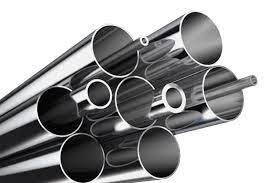Disclaimer: This is a user generated content submitted by a member of the WriteUpCafe Community. The views and writings here reflect that of the author and not of WriteUpCafe. If you have any complaints regarding this post kindly report it to us.
Stainless Steel 316 EFW (Electric Fusion Welded) pipes are stainless steel pipes known for their superior corrosion resistance and durability. They are constructed using EFW welding, resulting in solid and uniform joints. Stainless Steel 316 contains chromium, nickel, and molybdenum, contributing to its excellent corrosion resistance and high-temperature strength.
Properties and Advantages of Stainless Steel 316 EFW Pipes
- Corrosion Resistance: Highlight the primary advantage of Stainless Steel 316 EFW Pipes which is their excellent corrosion resistance, especially in aggressive environments containing chlorides, acids, and alkalis. Discuss how this property makes them ideal for applications in marine environments, chemical processing, and oil and gas industries.
- High Strength and Durability: Explore the superior mechanical properties of Stainless Steel 316 EFW pipes, including increased tensile strength, good elasticity, and resistance to pitting and crevice corrosion. Explain how these properties contribute to their long service life and reliability in demanding applications.
- Heat Resistance: Discuss the ability of Stainless Steel 316 EFW pipes to withstand high temperatures without losing their structural integrity, making them suitable for applications in high-temperature environments such as heat exchangers and boiler systems.
- Easy Maintenance and Hygiene: Highlight the ease of maintenance and cleaning of Stainless Steel 316 EFW pipes, which makes them ideal for applications in the food and beverage industry, pharmaceuticals, and sanitary applications where hygiene is critical.
Applications of Stainless Steel 316 EFW Pipes:
- Chemical Processing Industry: Discuss the use of Stainless Steel 316 EFW pipes in chemical plants, which are employed for conveying corrosive chemicals, acids, and alkalis.
- Oil and Gas Industry: Explore the applications of Stainless Steel 316 EFW pipes in offshore and onshore oil and gas installations, including pipelines, refineries, and petrochemical plants.
- Marine Applications: Explain how Stainless Steel 316 EFW pipes are utilized in marine environments for seawater handling, desalination plants, shipbuilding, and offshore structures.
- Heat Exchangers and Boiler Systems: Discuss the suitability of Stainless Steel 316 EFW pipes in heat transfer equipment, such as condensers, evaporators, and boiler tubes, due to their corrosion and heat resistance.
- Food and Beverage Industry: Highlight the use of Stainless Steel 316 EFW pipes in food processing, brewing, and dairy industries, where hygiene, corrosion resistance, and ease of cleaning are essential.
Considerations and Maintenance:
- Proper Installation and Welding Techniques: Provide insights into the appropriate installation and welding practices for Stainless Steel 316 EFW pipes to ensure strong and durable joints.
- Maintenance and Cleaning: Offer maintenance tips for Stainless Steel 316 EFW pipes, including routine inspections, cleaning methods, and compatible cleaning agents.







